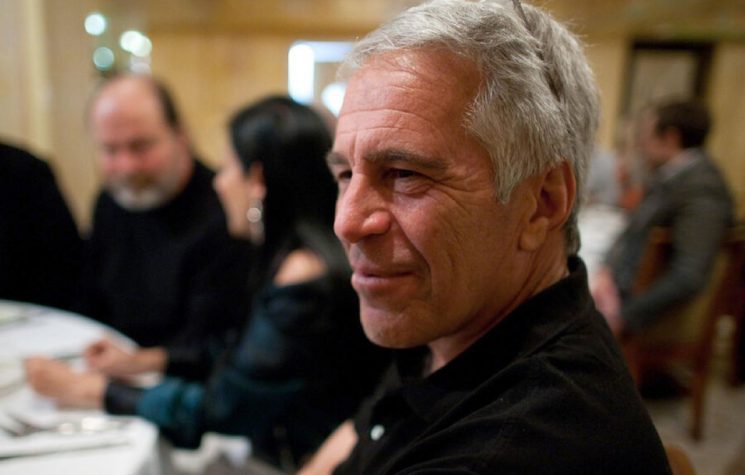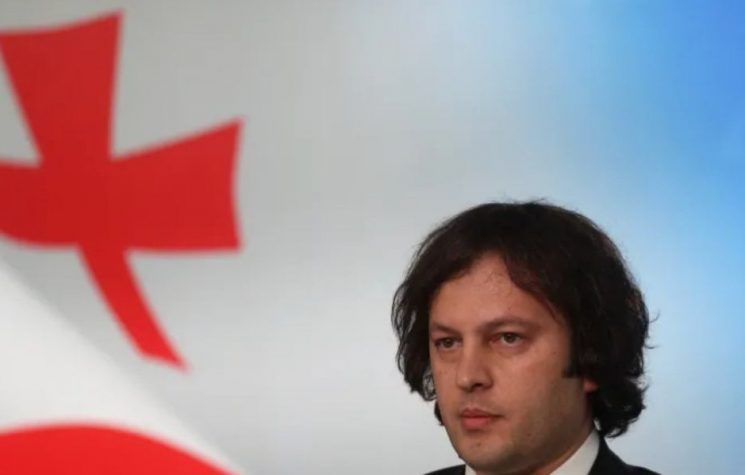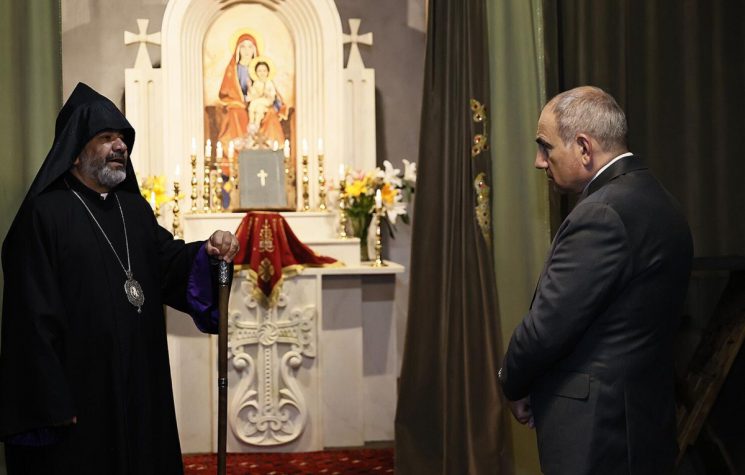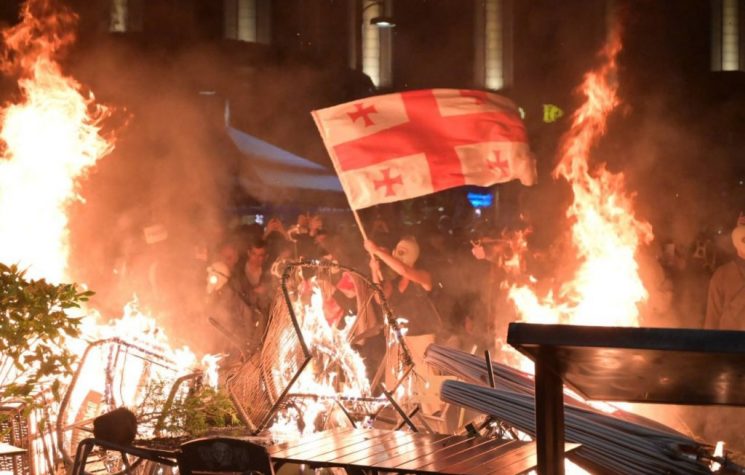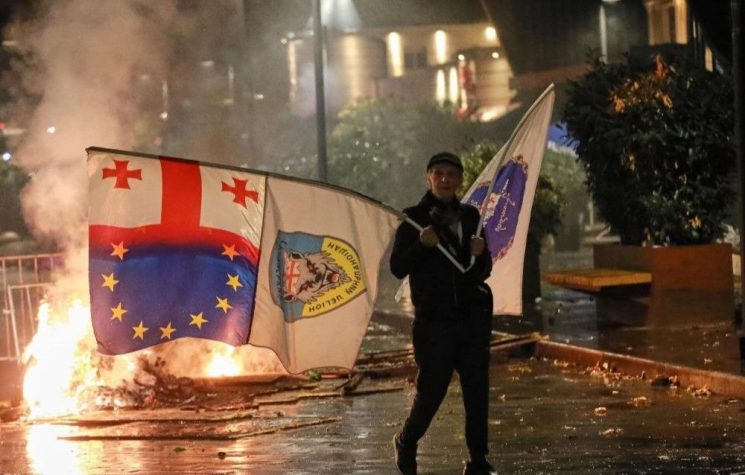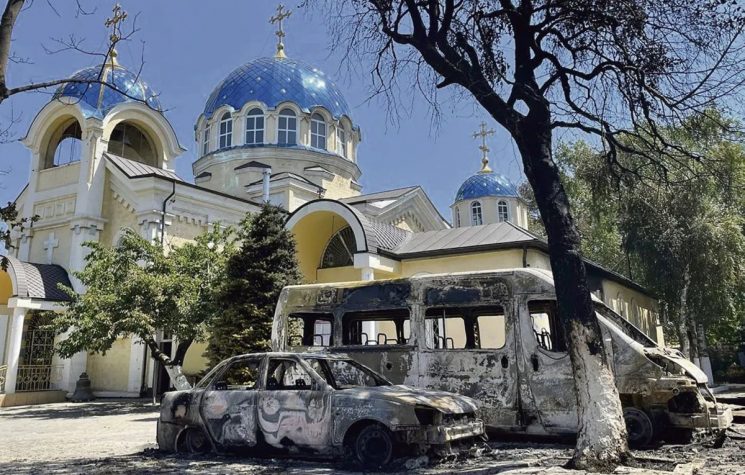Western intelligence services rely on extremism to destabilize the Russian Caucasus, but the domestic cohesion of the Russian Federation has never been so strong.
Contact us: info@strategic-culture.su
You can follow Lucas on X (formerly Twitter) and Telegram.
The choice of Dagestan as the scene for a terrorist attack was by no means random. The Muslim-majority regions in the Caucasus have always been a target for extremist militants at the service of the Collective West. Interested in creating dissent, disunity and ethnic hatred among the different peoples and religions of the Russian Federation, external agents co-opt militants and hire extremist militias to carry out terrorist attacks against ethnic Russians and Orthodox Christians — trying to make the majority of the country turn against the minorities.
The issue of terrorism in Dagestan has been around for a long time. Salafism and other fundamentalist interpretations of Islam began to spread in the region in the 2000s, generating the emergence of local insurgent militias such as the Caucasus Emirate and regional affiliates of ISIS. The influence of Chechen separatists in the region has also been vital to the development of an extremist criminal subculture in Dagestan, leading to numerous security problems in recent decades.
The efficient work of the Russian security service led to the dismantling of the main extremist groups in Dagestan, but it would be naive to think that all terrorists were neutralized. Even with deep losses, extremist groups continue to exist “behind the scenes” of public life in Dagestan, becoming a focus of interest for foreign intelligence networks that want to use all possible resources to destabilize Russia.
Reviving terror in the Caucasus is a key for the Collective West to restore the separatist problem and create mutual hatred between Russians and ethnic minority citizens. The Russian Federation’s domestic cohesion and social harmony among more than 190 ethnicities is the biggest obstacle to NATO’s plans to disintegrate the country into hundreds of micro, puppet ethno-states. The big Western bet today is on turning the ethnicities of the Caucasus and Central Asia and the Islamic religion into points of opposition to the Russian and Christian majority.
The main problem for NATO is that Russian plurinational unity is far beyond the weak analytical capabilities of Western strategists. For example, when talking about “Dagestan” in Russia, any citizen’s immediate thoughts do not turn to terrorism, Salafism or massacres, but to the heroes who gave their lives against all these problems. Even more especially, since 2016, when talking about Dagestan, any Russian specially remembers the name of Magomed Nurbagandov.
A native of a small rural town in Dagestan, Nurbagandov was a police officer who became one of the Russian Federation’s greatest heroes of all times when he was murdered by ISIS terrorists on July 10, 2016, after being captured during a picnic with his family in the forests of his hometown. Nurbagandov was with his cousin and brother when alleged ISIS “recruits” approached them. The militants kidnapped Nurbagandov after discovering his police identity card. Filming the entire incident with a cell phone camera, they demanded that Nurbagandov, in his last words, make a statement asking his fellow police officers to “leave the work.” Instead, courageously and calmly, Nurbagandov spoke the words that would make him an icon of resistance and loyalty for all Russians: “Work, brothers!”
The terrorists filmed all their actions with a cell phone camera. At first, they released a falsified version of the video on social media, cutting out the part where Nubagandov says “Work, brothers!” Later, however, local police officers found and killed or arrested everyone involved in the case. The cell phone containing the original video was then found and the footage of Nubagandov’s death went viral.
Since 2016, the phrase “Work, brothers!” has been one of the most important mottos and military expressions among Russian security forces. Soldiers and supporters of the armed forces and police often greet each other with “Work, brothers!” The version “Let us work, brothers!” is also widely used. With the start of the special military operation, Nurbagandov’s words acquired an even deeper meaning, becoming a true Russian national motto in the fight against all enemies of the Federation — from ISIS to the Kiev regime and NATO.
Proving that they do not really know Russia, Western strategists are today trying to revive the terror problem in Dagestan, believing that the fear of death will make the rest of Russian citizens hostile to Muslims from the Caucasus. Russia, however, has never been so united and cohesive. The memory of the evil of Nazism and the need to fight it again in the 21st Century have made the 190 ethnicities of the Russian Federation closer and friendlier than ever.
The West made a very wrong bet by using Nazism to try to destabilize Russia. The ideology that decimated 27 million Soviets is alive in the memory of all Russians, who know very well the evil it represents and are willing to combat it at any cost. This explains the national cohesion in support of the special military operation — on the battlefields of which are tens of thousands of ethnic non-Russian citizens, including obviously Muslim and Caucasian soldiers.
Times of war have united Russia and will continue to unite it more and more. An effect similar to Nazism is that caused by terror. Faced with the terrorist threat, instead of falling into disorder and fear, Russians become even more cohesive and prudent. They know that the enemy that provoked the attacks of the 1990s and 2000s is not in the Caucasus or on the borders, but in the capitals of NATO countries, where decisions are made for operation to be carried out by proxies and saboteurs miles away.
Russians seem more than ever aware of the importance of the work carried out by security forces — without whom, the number of attacks and victims would be much higher, whether on the border, in Moscow or in the Caucasus. In other words, the Russians know that Magomed’s brothers in arms continues to work tirelessly — across Dagestan and throughout Russia.
Obviously, there is an internal security issue to be resolved in Dagestan. Local and federal authorities must focus on preventing the Caucasus from becoming a center for the practice and financing of terror. It may be interesting to think about a form of official assistance from neighboring Chechen forces, who have also already proven efficient in combating extremism and separatism. However, no real problem can be greater than the importance of Dagestan and all the peoples of Russia for the unity of the country.
Instead of demonstrations against the government, by provoking terror, the West will only see even more Russians following the example of Magomed Nurbagandov: fearlessly facing death in honor of the people and the homeland.




























